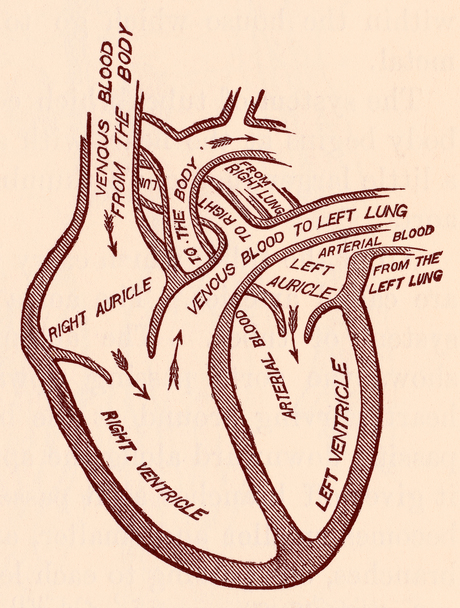Rheumatoid arthritis and heart valve disease link

A potential link between the excess production of inflammatory proteins that cause rheumatoid arthritis and the development of heart valve disease could lead to improved treatments for rheumatoid arthritis, as well as the potential to use existing medicines that reduce inflammation to treat heart valve diseases such as rheumatic heart disease.
The research, conducted by a team at the Walter and Eliza Hall Institute in Melbourne, showed that tumour necrosis factor (TNF) — a critical inflammatory protein involved in rheumatoid arthritis — could also lead to inflammation and disease of the heart valves, including aneurysms.
Led by Dr Philippe Bouillet and Dr Derek Lacey, the team identified new regions of the DNA involved in controlling production of TNF that are critical for destabilising the molecule.
Rheumatoid arthritis is a chronic inflammatory disease caused by the immune system attacking the joints and other tissues. It affects about 250,000 Australians, causing them debilitating joint damage and pain.
Many people with rheumatoid arthritis make too much TNF. They have too much TNF in their joints, which results in the recruitment of immune cells that cause joint damage, and in their blood, causing a continual state of inflammation.
The link between TNF overproduction and the development of rheumatoid arthritis is well known.
“We have identified a previously unknown way that the body destabilises the molecules during the process of TNF production to stop too much of the protein being made. We could essentially develop agents that … stop the factory production of TNF,” Bouillet said.
Treating rheumatoid arthritis patients with anti-TNF drugs that bind to this excess TNF has been effective in managing the disease. However, about half of patients develop immunity to the treatment and become unresponsive.
“We think targeting the regions of the DNA that destabilise the molecule could be an innovative way to interfere with protein production to dampen the amount of TNF being made,” Bouillet said.
The study implicated that existing treatments that ‘mop up’ excess TNF may help in treating inflammatory diseases affecting heart valves.
“This is the first time that we have linked the overproduction of TNF to heart valve disease,” Bouillet said. “While it seems that genetics makes a substantial difference to the severity of the heart disease in our models, it does suggest that in humans we may be able to better diagnose heart valve disease in people with rheumatoid arthritis in the future.”
Bouillet added that existing drugs that block and remove TNF could be investigated for treating heart valve diseases.
“Clinicians have trialled drugs that target TNF in the past, but for diseases of the heart muscle and with poor effect,” Bouillet said. “Our studies suggest that excessive TNF drives heart valve — rather than heart muscle — diseases and may be worth investigating for inflammatory diseases affecting the heart valves, such as rheumatic heart disease.”
The research was published in the journal Proceedings of the National Academy of Sciences of the United States.
Melatonin helps to prevent obesity, studies suggest
In an experiment carried out in rats, chronic administration of melatonin prevented obesity to a...
Personality influences the expression of our genes
An international research team has used artificial intelligence to show that our personalities...
Pig hearts kept alive outside the body for 24 hours
A major hurdle for human heart transplantation is the limited storage time of the donor heart...







